Seminar on Green and Social Entrepreneurship Training was successfully held in University of International Business and Economics (UIBE), Beijing
Seminar on Green and Social Entrepreneurship Training was successfully held in UIBE, Beijing on November 25th, 2015. This event was organized under the coordination of UN International Labour Organization (ILO) Beijing Office; China Youth Development Service Center, Communist Youth League of China; Business School of UIBE, and Green Project Management (GPM) China. It was held by EDP Center, Business School of UIBE; Center for Green Entrepreneurship (CGE) UIBE, and Center for International Business Ethics (CIBE), UIBE. More than 30 guests from government, business and academia exchanged ideas in depth on issues such as how to promote the healthy development of Chinese entrepreneurship and innovation, and how to carry out the green and social entrepreneurship training.
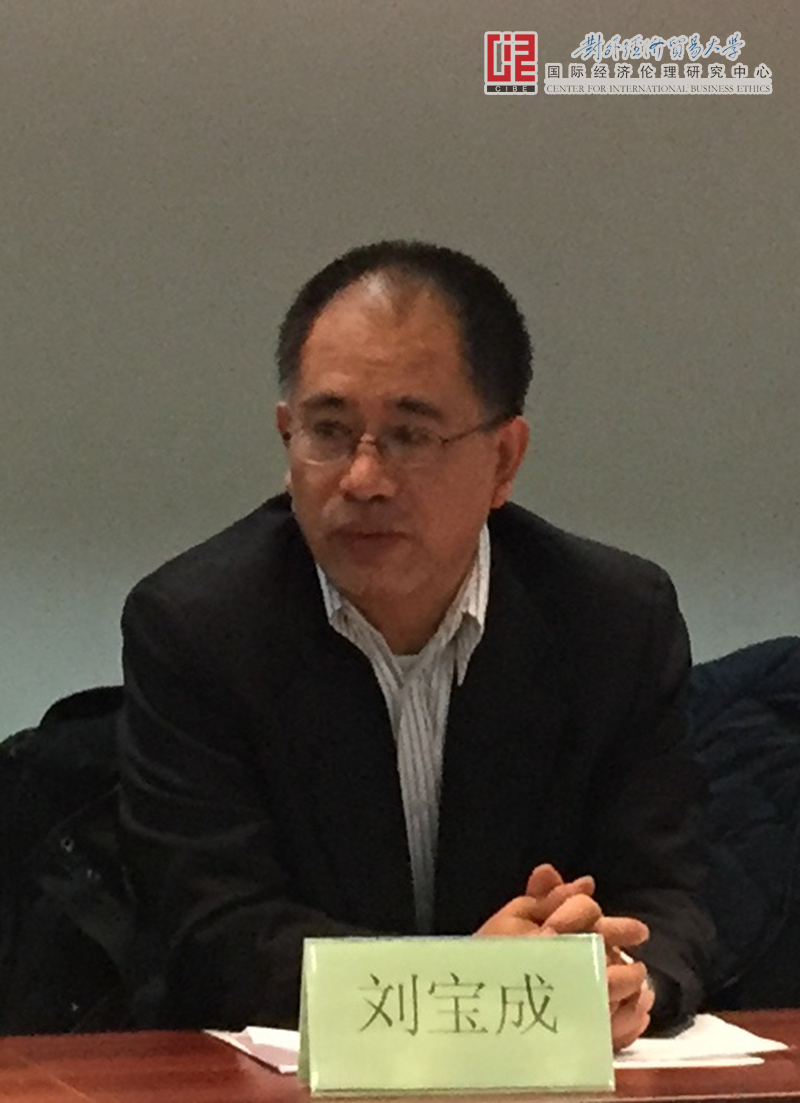
This seminar was emceed by Professor Liu Baocheng, Director of CGE at UIBE. Professor Liu pointed out that entrepreneurship and innovation is the key driver of China's economic transformation. How to introduce responsible and green development into the conception is not only the focus of attention of the international community today, but also the concerns of many entrepreneurs and supporters of entrepreneurship. The collaborative development of economic, environmental and social benefits requires not only knowledge, vision and determination, but also a number of stakeholders (such as government industrial park, investors, entrepreneurs, trainers, etc.) to build consensus based on entrepreneurship and innovation ecosystem, and promote shared values.

Professor Wang Yonggui, Dean of Business School, UIBE gave an opening speech. It is a great honor to gather representatives from organizers and other stakeholders together here to discuss the problems faced by entrepreneurship training and put forward solutions. Since the initiative of the Prime Minister, the whole society sets off an upsurge of innovation and entrepreneurship, practice and education. If the public is able to achieve the coordination and integration of resources and advantages, it will make contributions to the national development and social progress. Professor Wang hoped the seminar a success and it can provide specific suggestions for future implementation of related training.

GuoYimin, Vice Minister of China Youth Development Service Center Training Department and Standing Deputy Director of National Youth Rainbow project implementation guidance office introduced the original intention, development, implementation and main experience of the Rainbow project. He noted that youth entrepreneurship training consists of three levels: the first is providing entrepreneurial skills training and employment to young students; the second is implanting in entrepreneurship courses and training in activities; the third is integrating social resources through the establishment of entrepreneurial base, business incubator, Pioneer Park and venture capital funds and other ways. The Rainbow project will further respond to "One Belt, One Road" strategy, establish youth entrepreneurship park alliance, to promote youth entrepreneurship training to the whole country.
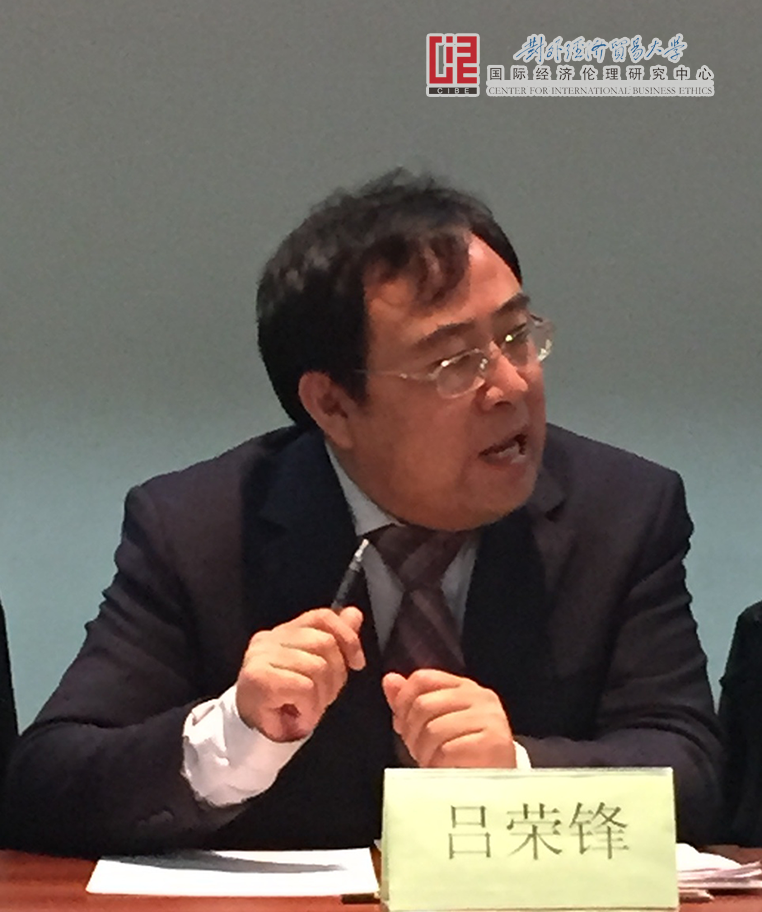
Lv Rongfeng, Deputy Director of the People’s Government of Yunhe District, Cangzhou City, Hebei Province provided his ideas on entrepreneurship and innovation from the perspectives of politics, economy, culture, ecology and society. He believed that entrepreneurship and innovation are an important driving force to promote China’s bottom-up deepening reform, which means more participation of market players and improvements of industrial business model. Entrepreneurship and innovation activities will update the traditional concepts, helping entrepreneurs and the public to embrace the social consciousness and inclusive attitude, so as to realize the sustainable development of pluralism. From the government's point of view, Mr. Lv pointed out that the government not only need to invest the necessary resources in entrepreneurship training, but also allow the entrepreneurs feel the dignity, providing practical help in reducing communication costs and solving their financing problems.

Professor Wang Yurong, Director of Technical Economics and Administration, Business School of UIBE put forward her ideas from the perspective of college professor. She thought that entrepreneurship training could be divided into two parts: universal education and specialized training. Universities can wake up the awareness of students through the establishment of entrepreneurship-related courses system to help them understand their own strengths and potentials, thus to choose their own direction of development. And for training of student groups along with entrepreneurship and entrepreneurial qualities, the integration of entrepreneur spirit should be emphasized, providing both theoretical and practical guidance.

Wu Yumin, Director of GPM China shared her ideas on responsible entrepreneurship management issues. She believed that the entrepreneur's qualities can be evaluated from the structure of knowledge, thinking and experience; innovation mainly consists of three key elements: technology, business value and users. GPM is the project management combining with sustainable development, and its assessment includes social attention, marginal value and integrations of resources. The evaluation criteria includes people, planet, profit, process and product five static standards; and prepare, position, price, promotion four dynamic standards.
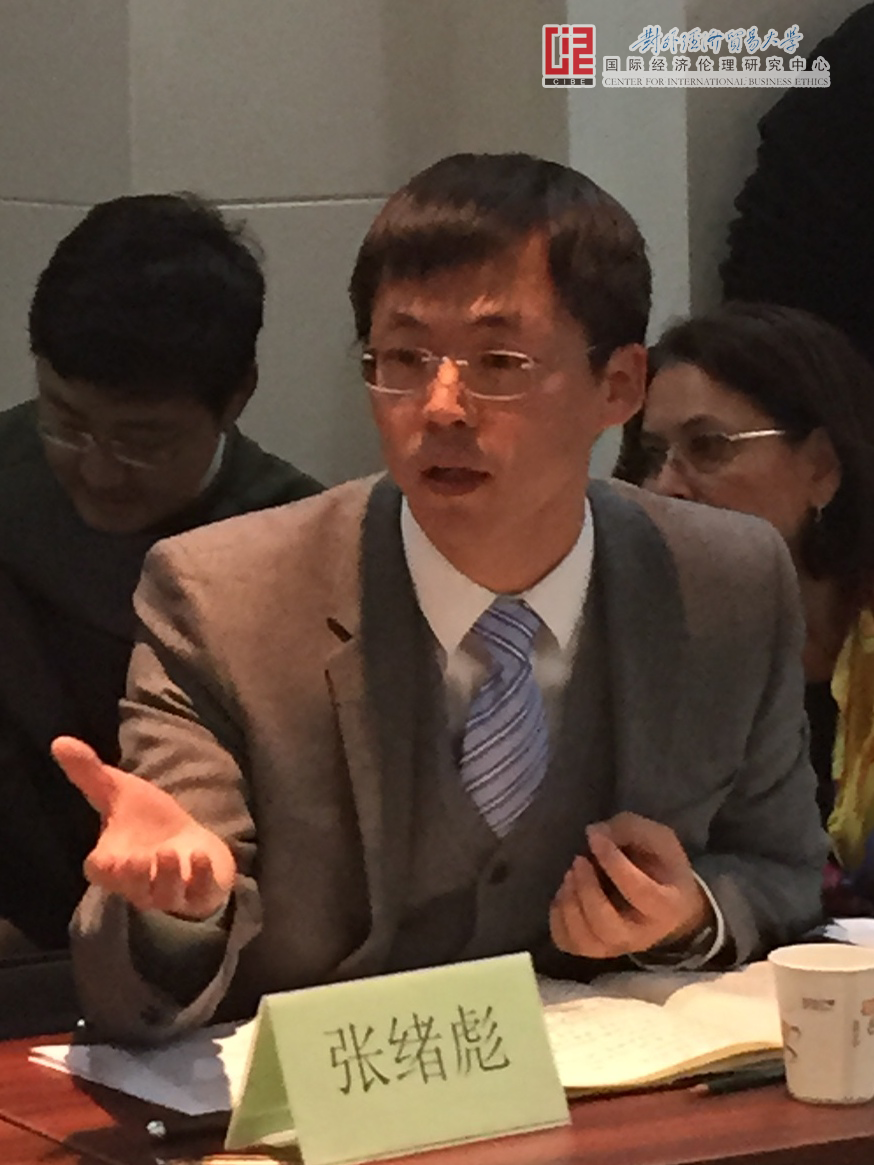
Dr. Zhang Xubiao, officer of ILO Beijing Office, pointed out that successful entrepreneurship needs the combination of motive, ability, idea and resource. At present, though Chinese young entrepreneurs have the desires and ideas, capacity building and resource acquisition is still insufficient. China urgently needs to open up all aspects of the business chain, helping to provide finance and intelligence platform for entrepreneurs, while promoting the second venture of companies. Dr. Zhang recommended representatives to develop appropriate training materials according to the challenges faced by youth entrepreneurship groups, strengthen government efforts to support entrepreneurship, and learn from international experience to provide a positive policy environment and support services for entrepreneurs, and thus to promote the integrationof entrepreneurship industrial chain.
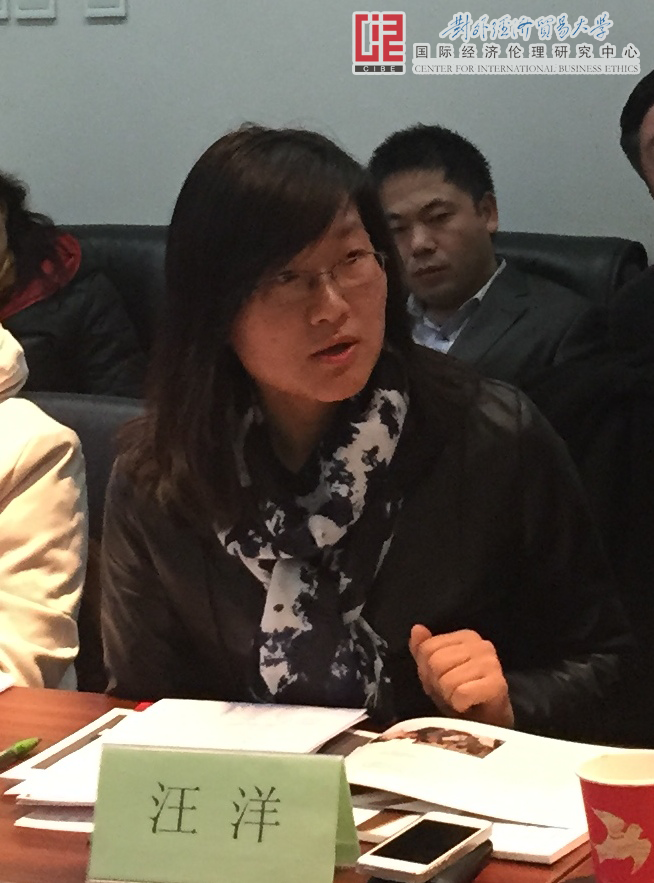
Dr. Wang Yang, Assistant Dean of Business School, UIBE and Director of EDP Center, UIBE introduced the efforts made by EDP Center in innovation and entrepreneurship training. It has developed three types of courses and training projects. The first one is management courses for enterprises, institutions and government; the second is courses open to the public; the third is training courses and visiting scholar activities overseas under international cooperation. Dr. Wang suggested that government, business, education and academic combine together to further promote the integration of related resources.
   
In the interactive session, Mr. Liu Zongbin, Partner of Junhe Capital believed that enterprises can provide multifaceted support to the society by opening their own function, which not only helps business innovations but also helps to promote their own growth. Dr. Zu Liangrong, Senior Program Officer of ILO International Training Center (Turin, Italy) introduced the unique position of the training center. The Center has good cooperative relationships with relevant United Nations agencies, host country representative offices and enterprises for many years, and it has been providing training to Chinese enterprises for twelve consecutive years. Its subsequent follow-up evaluation confirms that companies benefits from its training, which has laid a solid foundation for future cooperation. Mr. Zhai Rui, General Manager of Zhuhai HengqinTaofangtong Technology Ltd., as entrepreneur representative, pointed out that entrepreneurs need government support and promotion especially in the initial and accelerated development stage. Ms. Yordanka Tzvetkova, BRICS Project Manager of ILO International Training Center believed the support of local government resources to youth entrepreneurship is significant, and entrepreneurship plays an important role in promoting economic development. Many other guests shared their ideas, and the seminar ended successfully in their heat discussion.
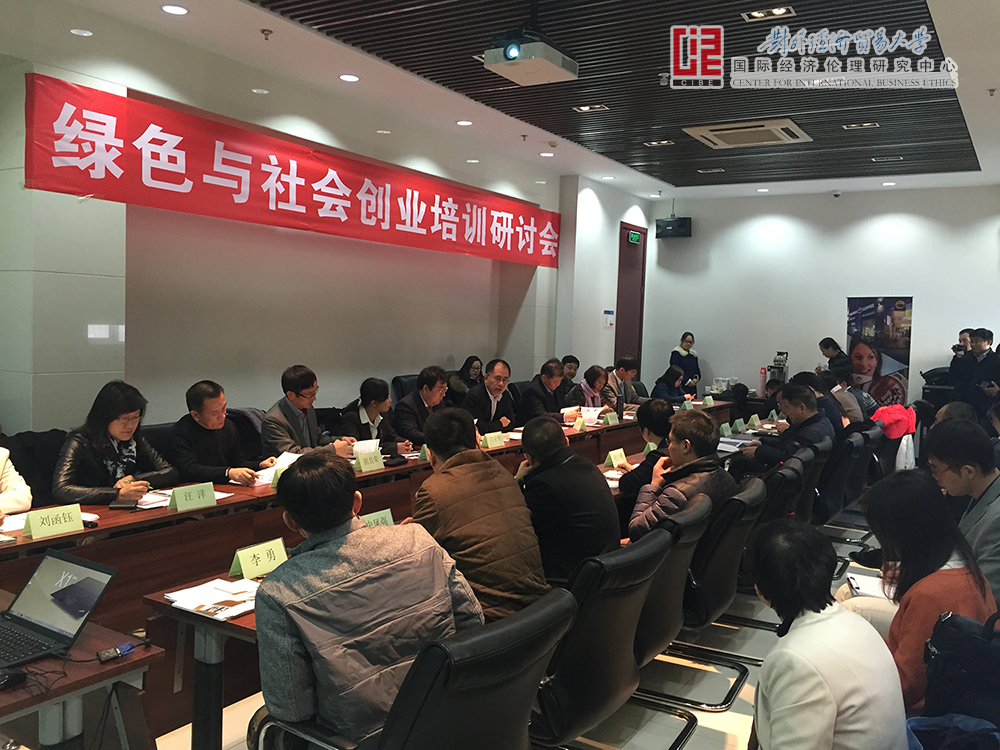 |
